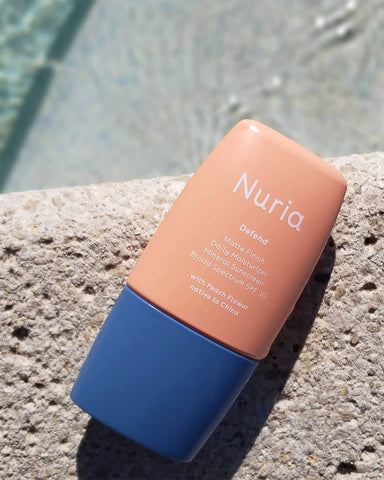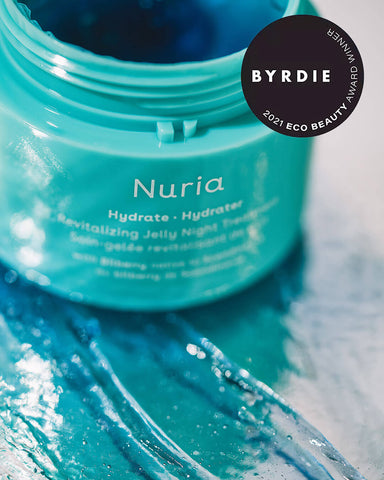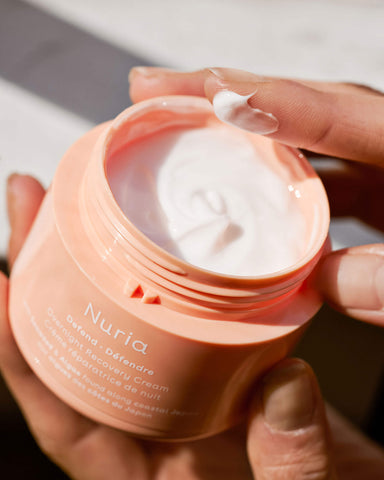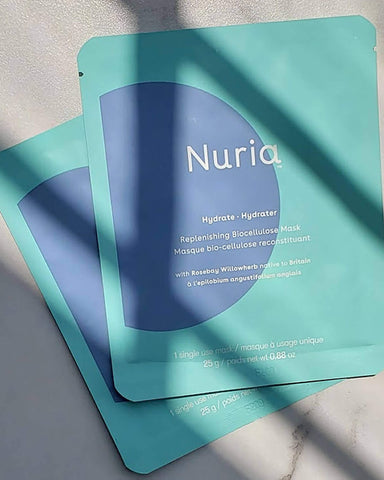
Skin Aging Part 1: The Main Causes and Prevention
We’ve all heard the saying that nothing is certain but death and taxes, though we’re pretty sure aging was left off the list of certainties by accident. While we know that aging is inevitable, we also know much more about cause and prevention than ever before; it’s now possible to stay vital and healthy looking further into the future than it’s ever been. Still, it’s important to understand the main causes of skin aging and the proven ways to hold it off for longer.
What Causes Wrinkles?
Along with elastin, collagen makes up the supportive scaffolding of our skin, but collagen production can start to slow down as soon as age 20. Ack! Over time this results in a less dense and bouncy foundation, leading to fine lines, wrinkles, and sagging. It’s true that there are hereditary factors over which we have little control when it comes to aging, but the majority of skin aging is caused by the following four environmental and lifestyle factors that we can mitigate and manage.
1. Sun Damage
Sun damage, otherwise known as photoaging, is far and away the number one culprit of premature aging. UV radiation, especially UVA, penetrates the deepest layers of skin and damages DNA and collagen fibers, leading to skin laxity, wrinkles, uneven skin tone/pigmentation, sunspots, and in the worst-case scenario, skin cancer.
There really is no such a thing as a safe tan, and in fact the production of melanin (a tan) is your body’s defense mechanism – the way it tries to prevent the radiation from getting in.
Wearing a broad-spectrum UVA/UVB sunscreen with an SPF of at least 30 every day is non-negotiable if you want to keep sun damage at bay. Whether the sunscreen you choose contains physical/mineral sun filters or chemical ones isn’t as important as actually wearing the one you choose, every day, no matter the weather.
2. Free Radicals
What free radicals are (reactive oxygen molecules) and how they function (zipping around our bodies looking for an electron with which to form a stable pair) can seem a bit abstract.
So, this is where an obvious example comes in handy: just think of how quickly a sliced apple turns brown. This is called oxidative stress, caused by free radicals. The same thing happens to our skin over time. When the free radicals become too many for your body to neutralize, they start to damage the cells that produce hyaluronic acid and collagen, which keep our skin smooth and supple. Free radicals happen for a variety of reasons, both within our bodies and in the environment around us. Smoking, pollution, the sun, and even highly processed foods are sources of free radicals, and they can all affect our skin. Not surprisingly, the best way to counter oxidative stress is with antioxidants! Antioxidants can certainly be ingested, and they help with the internal oxidative stress that our bodies fight every day; red wine, green tea, grapes, onions, and spinach are just a few of the many foods and beverages with excellent antioxidant profiles. They can also be added to skincare to fight aging at the surface of the skin, and most skincare antioxidants come from the very same fruits, vegetables, and teas. Below is a list of Nuria skincare products and the antioxidants they contain:
- Defend Skin Restoring Serum: Carrot Seed Oil and Rooibos Red Tea
- Hydrate Revitalizing Jelly Night Treatment: Bilberry and Gardenia
- Defend Overnight Recovery Cream: Brown Algae and Seaweed
- Hydrate Replenishing Biocellulose Mask: Fruit/Citrus Extracts
- Rescue Pore-Minimizing Toner: Rosemary
- Defend Purifying Cleanser: Moringa Seed, Seaberry, Green Tea
3. Smoking
It is clear that both sun and smoking demolish collagen and elastin, but smoking unfortunately works to damage your skin internally, by constricting blood vessels and oxygen flow (amongst other things), and externally, by bathing your skin in free radicals via the smoke you exhale with each puff. Never heard of “smoker’s glow?” Now you know why. If the serious health risks associated with smoking aren’t incentive enough to stop, well, there’s nothing wrong with skin aging prevention being the motivator.
4. Lack of Sleep
It seems like most of us function at some level of ‘tired’ these days. The unfortunate result is that many of us walk around with elevated levels of cortisol—the stress hormone our bodies release when we don’t get enough sleep—and high cortisol levels sustained over time can contribute to the breakdown of collagen. To add insult to injury, lack of sleep means lack of “recovery” time in terms of cellular turnover (which leads to dullness and wrinkles) and the good hormones our bodies produce in periods of rest. In other words, beauty sleep really is a thing, and sleep in general is crucial to our overall well-being. (In fact, we believe that self-care probably ought to start with pajamas.) In Skin Aging Part 2: Skincare and Mindful Living, we'll look at the additional preventative measures and good habits you can develop for a lifetime of beautiful skin.
Related: ScienceDirect
About the author, Naomi Furgiuele
Naomi is the founder of Nuria and a self-professed nerd with a love for all things science and skin care. She’s had a hand in product development for some of the biggest global beauty brands in the business, gets some of her best ideas while out on a run, and loves her exfoliator almost as much as her awesome family.




